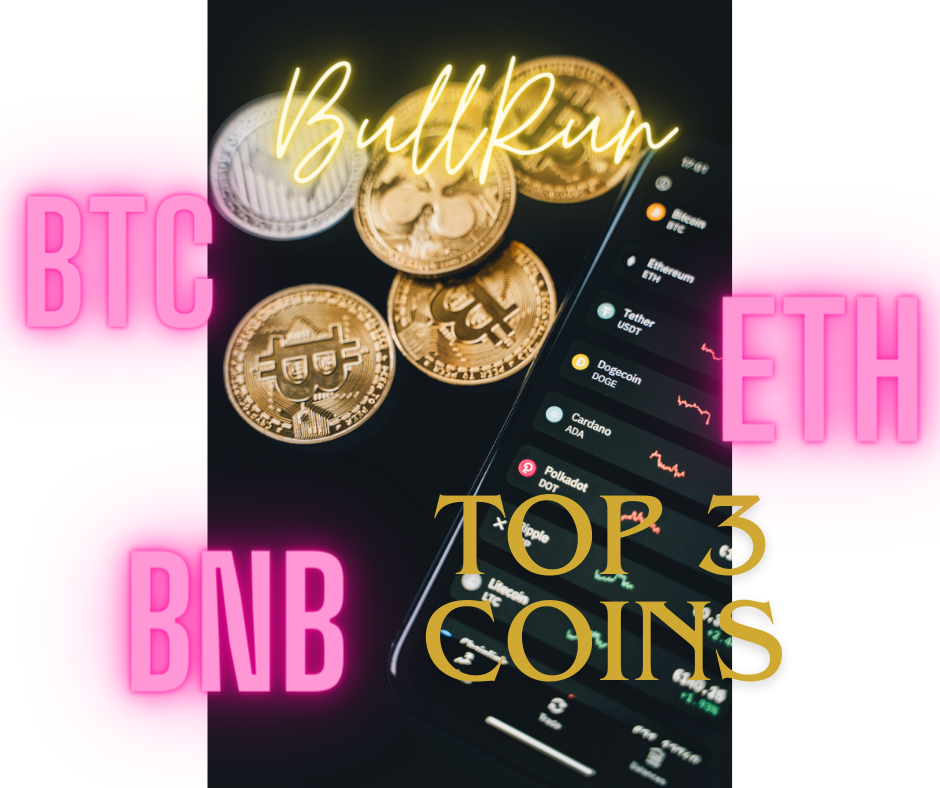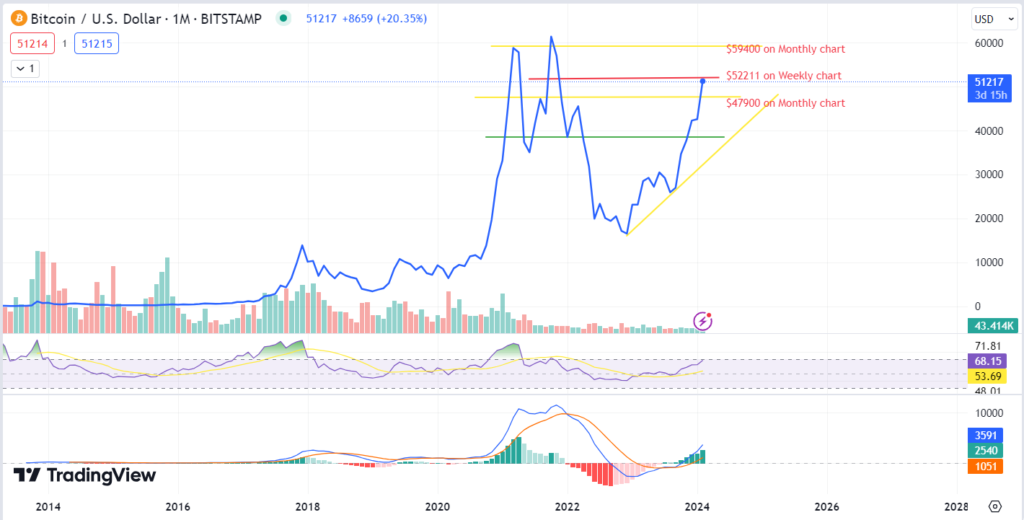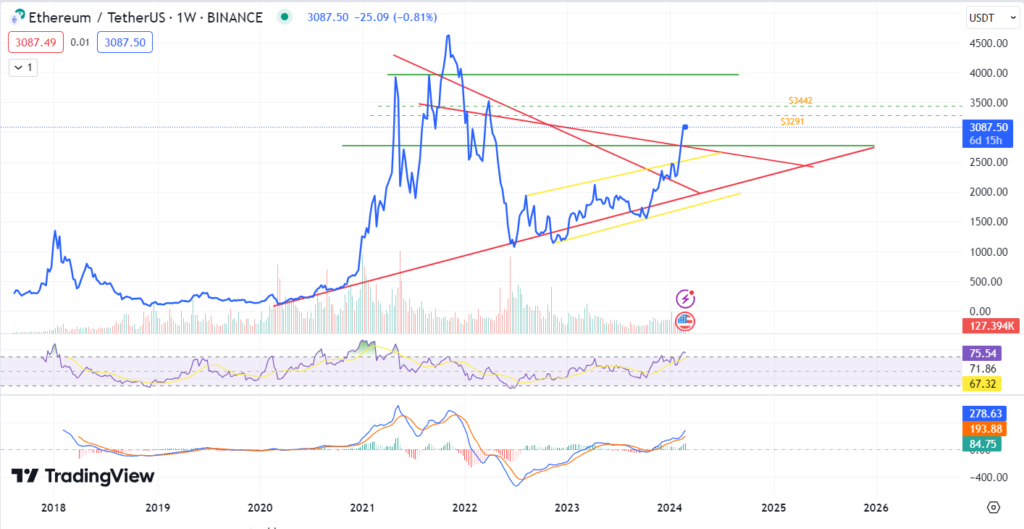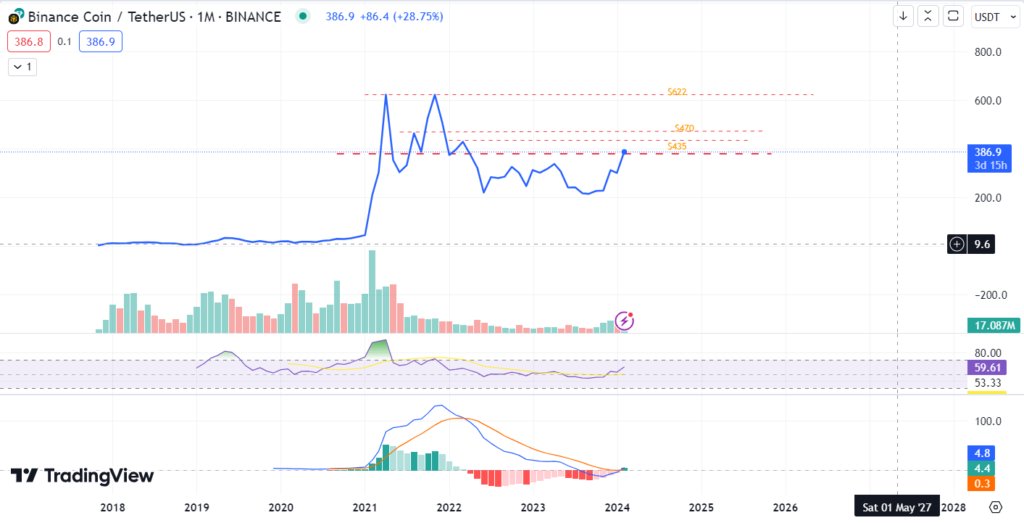
Bitcoin: The Digital Gold
Think of Bitcoin as the grandfather of cryptocurrencies. Launched in 2009 by the mysterious Satoshi Nakamoto, it revolutionized the financial world by introducing the concept of decentralized digital money. Unlike traditional currencies controlled by governments, Bitcoin operates on a distributed network of computers, making it independent of any central authority.
Why is Bitcoin so important?
- First-mover advantage: Being the first major cryptocurrency, Bitcoin established the blueprint for others to follow and gained widespread recognition.
- Limited supply: Only 21 million Bitcoins will ever be in existence, creating scarcity and potentially driving up its value over time.
- Store of value: Similar to gold, Bitcoin is often seen as a hedge against inflation.
- The upcoming Bitcoin halving event in 2024, which cuts the mining rewards in half, could impact its price due to limited supply dynamics.

Ethereum: The Engine of Innovation
While Bitcoin primarily functions as a store of value, Ethereum takes a different approach. Launched in 2015, it’s often referred to as the “world computer.” Ethereum’s unique feature is smart contracts, self-executing programs that can automate agreements and processes without the need for intermediaries. This innovation has paved the way for a wide range of applications, including:
- Decentralized finance (DeFi): Peer-to-peer financial services like lending, borrowing, and trading without banks.
- Non-fungible tokens (NFTs): Unique digital assets representing ownership of real-world or digital items like artwork, music, or collectibles.
- Decentralized applications (dApps): Web applications running on the Ethereum network, offering various functionalities beyond traditional financial services.
Why is Ethereum so important?
- Enabling innovation: Ethereum’s platform allows developers to build innovative applications in a decentralized environment.
- Vibrant ecosystem: A large and active community of developers constantly builds and creates new dApps and functionalities.
- Ethereum 2.0: This upcoming upgrade promises to address scalability issues and improve transaction processing efficiency.

Binance Coin (BNB): The Utility Token
Unlike Bitcoin and Ethereum, Binance Coin (BNB) is a utility token specifically used within the Binance ecosystem. Launched in 2017, BNB provides various benefits to users of the Binance cryptocurrency exchange, such as:
- Discounted trading fees: Users holding BNB pay lower fees when they trade cryptocurrencies on the Binance exchange.
- Participation in token sales: BNB allows users to participate in Launchpad, a platform offering access to exclusive token sales of new and promising blockchain projects.
- Payment for services: BNB can be used to pay for various services within the Binance ecosystem, such as booking travel or using the Binance Pay payment solution.
Why is BNB so important?
- Integration with the Binance ecosystem: As the Binance exchange holds a dominant position in the crypto market, BNB benefits from its wide user base and integration with various services.
- Token burning: Binance regularly burns a portion of its BNB tokens, potentially contributing to its value appreciation over time by reducing the total supply.

The world of cryptocurrencies is dynamic and rapidly evolving. While Bitcoin, Ethereum, and Binance Coin represent the top three by market cap today, it’s important to remember that the future remains unpredictable. Always conduct your own research, understand the risks involved, and never invest more than you can afford to lose before entering the cryptocurrency market. By staying informed and making informed decisions, you can navigate this exciting and innovative space responsibly.
NOTE: The MACD is a valuable tool for chart reading by providing insights into momentum, potential trend reversals, and the relationship between moving averages. However, it’s crucial to remember that no single indicator is perfect. Always use the MACD in conjunction with other indicators, fundamental analysis, and your own risk management strategies when making investment decisions.
